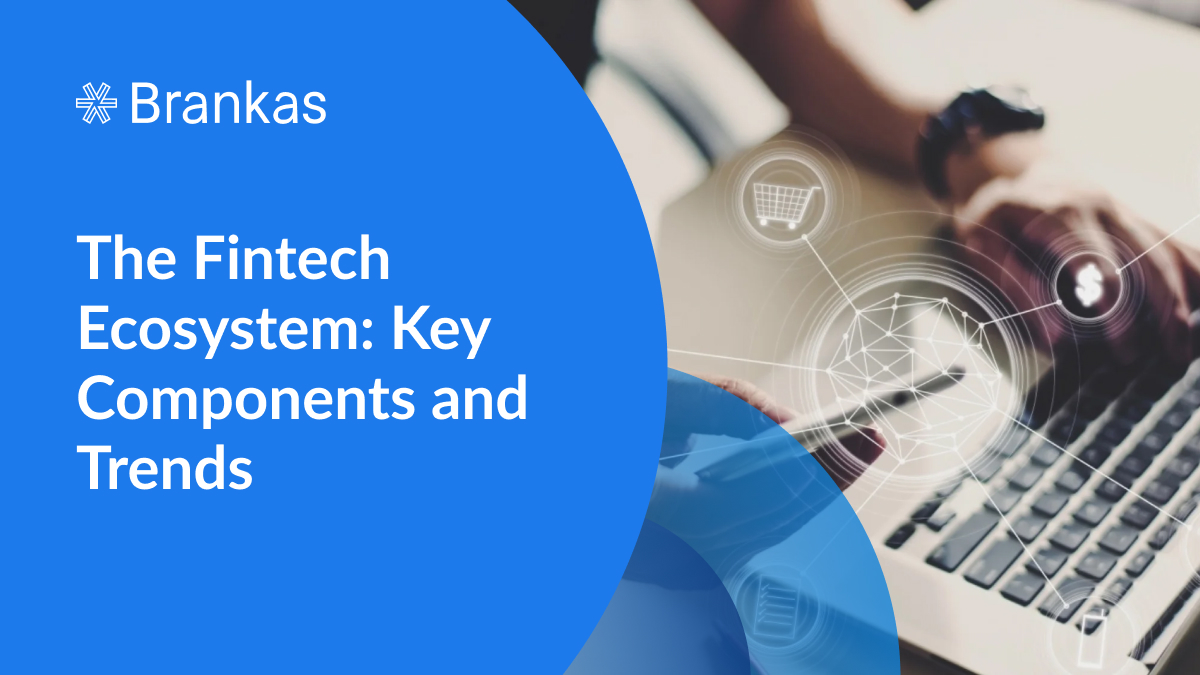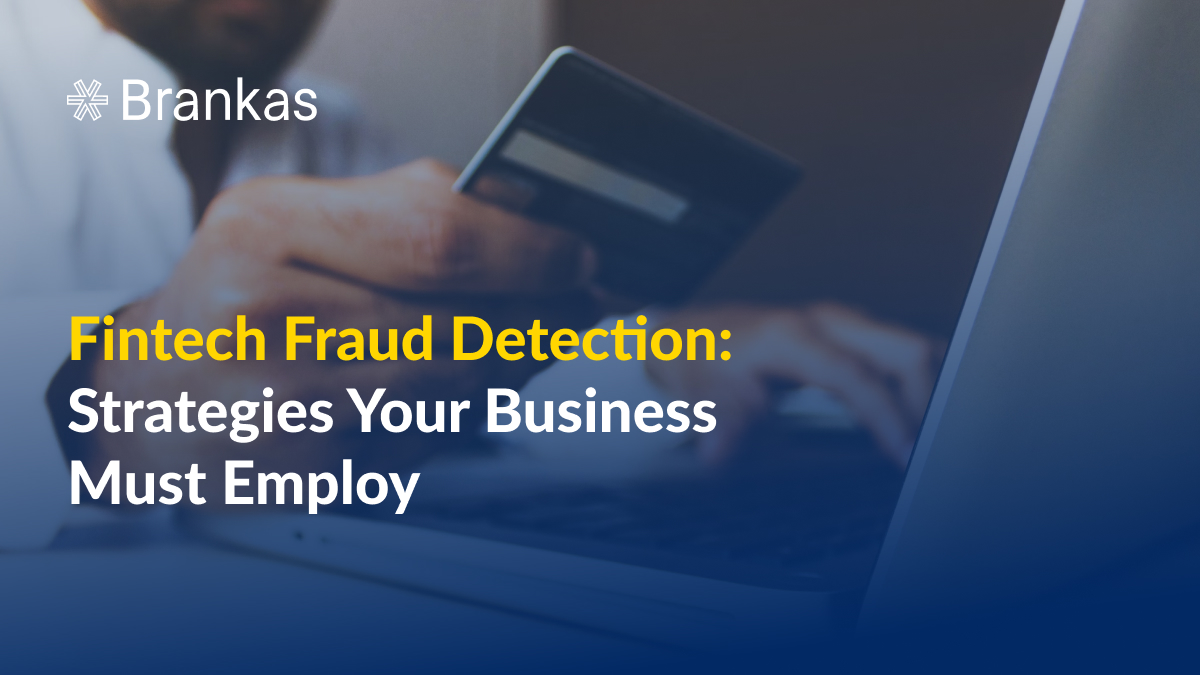
Dive into the financial ecosystem to understand its key players, challenges, and opportunities that are transforming the fintech landscape.

The rapid evolution of financial technology (fintech) has transformed the way consumers and businesses engage with financial services. However, this transformation has also led to an increase in fintech fraud, presenting significant challenges for companies operating in this space. As the sophistication of fraudulent activities grows, so too must the strategies for fintech fraud detection and fintech fraud prevention.
Today we’ll explore the current landscape of fraud in fintech, the methods used to detect and prevent it, and the importance of proactive measures in safeguarding financial transactions.
Fintech fraud encompasses a wide range of deceptive practices that exploit digital financial services. This can include identity theft, account takeover, payment fraud, and more. As fintech companies continue to innovate and offer new services, they inadvertently create opportunities for fraudsters to exploit vulnerabilities in these systems.
The rise of mobile banking, online payment solutions, and digital wallets has made it easier for consumers to access financial services; however, it has also made it easier for criminals to perpetrate fraud. According to newly released data from the Federal Trade Commission, consumers reported losing over $10 billion to fraud in 2023, marking the first time that fraud losses have reached this level. This figure represents a 14% increase compared to the reported losses in 2022.

The consequences of fintech fraud extend beyond immediate financial losses. They can damage a company’s reputation, erode customer trust, and lead to increased regulatory scrutiny. For startups and established firms alike, a single incident of fraud can have lasting impacts on their viability in a competitive market.
Moreover, as consumers become more aware of the risks associated with digital transactions, their expectations for security have heightened. Companies that fail to implement effective fintech fraud detection measures risk losing customers who prioritize safety and security when choosing financial service providers.
Effective fintech fraud detection is essential for mitigating risks associated with fraudulent activities. By identifying suspicious behavior early on, companies can take proactive measures to prevent losses and protect their customers. Here are several compelling reasons strong fraud detection practices are essential:
1. Reducing Financial Losses
Early detection of fraudulent activities is key in minimizing potential losses, especially in services such as online payments, peer-to-peer payment systems, and the like. By identifying and addressing suspicious transactions before they are completed, companies can significantly reduce financial losses and protect their customers, ultimately saving considerable amounts of money.
2. Safeguarding Customer Trust
Customers expect their financial information to be secure. By implementing effective fraud detection mechanisms, companies can reassure customers that their data is protected, fostering loyalty and trust.
3. Economic Stability
A thriving fintech sector contributes significantly to economic growth. By curbing fraudulent activities, fraud detection mechanisms play a vital role in maintaining the stability of the financial system. This stability is essential for continued investment and innovation within the fintech space, ultimately benefiting the broader economy.
4. Compliance with Regulations
Many jurisdictions impose strict regulations on financial institutions regarding fraud prevention and detection. Implementing stringent systems within their fintech ecosystem helps ensure compliance with these regulations, reducing the risk of penalties or legal repercussions.
5. Enhancing Operational Efficiency
Effective fraud detection systems streamline operations by automating the identification of suspicious activities. This allows staff to focus on legitimate transactions while minimizing manual reviews.
As the fintech industry continues to evolve, so do the strategies and technologies employed for fraud detection within it. Companies are leveraging advanced technologies and analytical tools to enhance their capabilities in identifying fraudulent activities:
1. Machine Learning and Artificial Intelligence
Machine learning (ML) and artificial intelligence (AI) are at the forefront of modern fraud detection techniques, particularly within open finance solutions. These technologies analyze vast amounts of transaction data to identify patterns indicative of fraudulent behavior. By continuously learning from new data inputs, ML algorithms can adapt to emerging threats and enhance their accuracy over time.
For instance, AI-driven systems can flag unusual spending patterns or sudden changes in user behavior that may signal fraudulent activity. This proactive approach enables companies to respond quickly to potential threats before they escalate, ensuring a safer environment for users within the open finance ecosystem.
2. Behavioral Analytics
Behavioral analytics involves monitoring user interactions with financial platforms to establish baseline behaviors. Deviations from these norms—such as logging in from an unfamiliar device or attempting high-value transactions shortly after account creation—can trigger alerts for further investigation. By focusing on user behavior rather than solely relying on static rules or thresholds, companies can enhance their ability to detect sophisticated fraud attempts that might otherwise go unnoticed. This approach is particularly effective when integrated with APIs in financial services, allowing for more dynamic and responsive fraud detection mechanisms.

3. Multi-Factor Authentication (MFA)
Multi-factor authentication adds an additional layer of security by requiring users to provide multiple forms of verification before accessing their accounts or completing transactions. This could include something they know (like a password), something they have (like a smartphone), or something they are (like a fingerprint).
Implementing MFA significantly reduces the likelihood of unauthorized access and helps prevent account takeover attempts—a common form of fintech fraud.
4. Real-Time Monitoring
Real-time monitoring systems continuously analyze transactions as they occur, allowing companies to identify suspicious activities instantly. This immediate response capability is crucial for preventing fraudulent transactions before they are completed.
By employing automated alerts that notify security teams when unusual patterns are detected, organizations can act swiftly to mitigate potential risks.
5. Collaboration with Other Financial Institutions
Collaboration among financial institutions is essential for effectively combating fintech fraud. By sharing information about known threats and emerging trends, organizations can enhance their collective defenses against fraudulent activities, particularly through rigorous financial API integrations.
These integrations facilitate the development of shared databases that track known fraudsters and suspicious behaviors across multiple platforms, creating a more comprehensive understanding of the threat landscape and
While detecting fraud is critical, implementing effective fintech fraud prevention strategies is equally important in reducing vulnerabilities within financial systems:
1. Comprehensive Risk Assessment
Conducting thorough risk assessments allows organizations to identify potential vulnerabilities within their systems and processes. By understanding where weaknesses exist—whether due to technology gaps or operational inefficiencies—companies can take targeted actions to strengthen their defenses against fintech fraud.
2. Implementing Strong Security Policies
Establishing comprehensive security policies for handling sensitive data is crucial in preventing breaches that could lead to fintech fraud, especially concerning disbursement solutions. These policies should encompass data encryption standards, secure transaction processes, and guidelines for safely managing disbursements.
Employee training programs on data protection best practices are also essential. Staff must be equipped to handle sensitive information related to disbursement processes, recognize potential threats, and respond effectively to security incidents.
3. User Education and Awareness
Educating customers about potential scams and best practices for protecting their accounts is vital for preventing fraud in fintech. By providing resources that inform users about phishing attacks or social engineering tactics, companies empower customers to recognize red flags and take proactive measures.
4. Regular System Audits
Conducting regular audits of security systems and processes helps ensure that preventative measures remain effective over time. As technology evolves and new threats emerge, ongoing assessments allow organizations to adapt their strategies accordingly.
5. Utilizing Advanced Technology Solutions
Investing in advanced technology solutions specifically designed for fraud prevention can significantly enhance an organization’s capabilities in combating fintech fraud, especially when integrated with lending APIs. These solutions may include specialized software that employs machine learning algorithms or behavioral analytics tools tailored for detecting fraudulent activities within lending processes. By leveraging these technologies, organizations can better identify and mitigate risks associated with fraudulent transactions.

As the fintech industry continues to change and evolve, so will the tactics employed by those seeking to exploit its vulnerabilities through fraud in fintech. To stay ahead of these threats, organizations must prioritize cutting-edge fintech fraud detection and fraud prevention strategies that leverage advanced technologies and collaborative efforts within the industry.
Ultimately, the future success of fintech hinges on its ability to navigate these challenges effectively ensuring that consumers feel secure when engaging with digital financial services while fostering an environment conducive to innovation and growth within the industry.
In this data-sensitive environment where both opportunities and threats abound, proactive measures are not just recommended; they are essential for ensuring long-term sustainability in the complex world of fintech.
Protect your business from the rising threat of fintech fraud with Brankas! Our advanced are designed to safeguard your financial transactions and enhance customer trust.
With Brankas, you can utilize cutting-edge technologies like machine learning and behavioral analytics to identify and mitigate fraudulent activities in real-time. Our APIs empower you to implement the latest security measures, including automated alerts and identity verification, ensuring that your customers' data remains secure.
Get in touch with us today to get started!

Dive into the financial ecosystem to understand its key players, challenges, and opportunities that are transforming the fintech landscape.